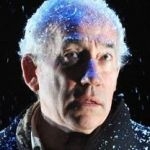Apnea - the real risk of dying in your sleep?
-
quietmorning
- Posts: 1279
- Joined: Wed May 04, 2011 10:39 am
Apnea - the real risk of dying in your sleep?
I had an event today - dealing with my sleep doc's office - that led me to the question of just why is it that it is the 'sleep' that's the priority and not the 'oxygen'.
Seems to me it would be the opposite way around, as oxygen actually keeps you alive, and sleep keeps you healthy? I realized I considered a night with out cpap for someone with severe apnea an emergency situation - thinking primarily of suffocation. Couldn't I DIE in my sleep if things aren't working properly? If my pressure isn't what it should be? If there is no electricity?
My husband and I had this conversation on the way to dinner - and he seemed to have the same perspective as the sleep center - it's about sleep, not about the oxygen. "After all, you are DOING better on the CPAP, even if the pressure isn't right, right?"
If the pressure isn't right, then I'm not getting the air I need. Wrong. . .oh so wrong. **stomps foot**
But I wasn't sure if my thinking was off or the sleep center's . . . so I started looking up things, and found that the main consensus is that you cannot die like an infant can in your sleep from apnea suffocation. You will wake up before you suffocate. Then I think of those that make the news that died of 'apnea' in their sleep. . .and want to know the real numbers - but there doesn't seem to be any 'real' numbers. Or at least, I couldn't find any.
What's the truth here? Can I guarantee that a cluster won't kill me . . .pretty much and just go with the flow? Those clusters not only slaughter any thought of getting any deep or rem sleep, they really cause some pretty deep drops in oxygen (avg between 79 and 82%). I wake up. . . fully awake - after I've had several events on top of each other - but not until then. I do wake into light sleep. . .but is that enough?
Any clarity in this would be much appreciated. I am somewhat disturbed with the attitude of the sleep center . . . but if they are right. . .then I can at least get off my irritable high horse.
Thanks!
Seems to me it would be the opposite way around, as oxygen actually keeps you alive, and sleep keeps you healthy? I realized I considered a night with out cpap for someone with severe apnea an emergency situation - thinking primarily of suffocation. Couldn't I DIE in my sleep if things aren't working properly? If my pressure isn't what it should be? If there is no electricity?
My husband and I had this conversation on the way to dinner - and he seemed to have the same perspective as the sleep center - it's about sleep, not about the oxygen. "After all, you are DOING better on the CPAP, even if the pressure isn't right, right?"
If the pressure isn't right, then I'm not getting the air I need. Wrong. . .oh so wrong. **stomps foot**
But I wasn't sure if my thinking was off or the sleep center's . . . so I started looking up things, and found that the main consensus is that you cannot die like an infant can in your sleep from apnea suffocation. You will wake up before you suffocate. Then I think of those that make the news that died of 'apnea' in their sleep. . .and want to know the real numbers - but there doesn't seem to be any 'real' numbers. Or at least, I couldn't find any.
What's the truth here? Can I guarantee that a cluster won't kill me . . .pretty much and just go with the flow? Those clusters not only slaughter any thought of getting any deep or rem sleep, they really cause some pretty deep drops in oxygen (avg between 79 and 82%). I wake up. . . fully awake - after I've had several events on top of each other - but not until then. I do wake into light sleep. . .but is that enough?
Any clarity in this would be much appreciated. I am somewhat disturbed with the attitude of the sleep center . . . but if they are right. . .then I can at least get off my irritable high horse.
Thanks!
Re: Apnea - the real risk of dying in your sleep?
Hi quietmorning!quietmorning wrote:I had an event today - dealing with my sleep doc's office - that led me to the question of just why is it that it is the 'sleep' that's the priority and not the 'oxygen'.
Seems to me it would be the opposite way around, as oxygen actually keeps you alive, and sleep keeps you healthy? I realized I considered a night with out cpap for someone with severe apnea an emergency situation - thinking primarily of suffocation. Couldn't I DIE in my sleep if things aren't working properly? If my pressure isn't what it should be? If there is no electricity?
My husband and I had this conversation on the way to dinner - and he seemed to have the same perspective as the sleep center - it's about sleep, not about the oxygen. "After all, you are DOING better on the CPAP, even if the pressure isn't right, right?"
If the pressure isn't right, then I'm not getting the air I need. Wrong. . .oh so wrong. **stomps foot**
But I wasn't sure if my thinking was off or the sleep center's . . . so I started looking up things, and found that the main consensus is that you cannot die like an infant can in your sleep from apnea suffocation. You will wake up before you suffocate. Then I think of those that make the news that died of 'apnea' in their sleep. . .and want to know the real numbers - but there doesn't seem to be any 'real' numbers. Or at least, I couldn't find any.
What's the truth here? Can I guarantee that a cluster won't kill me . . .pretty much and just go with the flow? Those clusters not only slaughter any thought of getting any deep or rem sleep, they really cause some pretty deep drops in oxygen (avg between 79 and 82%). I wake up. . . fully awake - after I've had several events on top of each other - but not until then. I do wake into light sleep. . .but is that enough?
Any clarity in this would be much appreciated. I am somewhat disturbed with the attitude of the sleep center . . . but if they are right. . .then I can at least get off my irritable high horse.
Thanks!
The body pretty much knows what it is doing. When you have an apnea the event raises the central nervous system activity. So you are primed to act to the next apnea - perhaps you will wake up quicker.
That said I have read often that this is the start of an ever increasing dance. There seem to be more and deeper events as the night progresses. It seems that there become times of low O2 contrasted with times of low CO2. Either one will starve the cells of oxygen.
The strangest part of this dance for me is why in the world do the oxygen desaturations occure so quickly?!?!!?? I know that if I simply stop breathing at my computer during the day and stay that way for 30 seconds - well - I know I am unlikley to see the SpO2 reading move more than two percent! Yet practically built into some definitians of a hypotnea is "4% in ten seconds". The same pulse oximeter seeing events at night sees desaturations of 5% in twenty seconds. How can this be?
But to return to your question I was diagonsed AHI=52 (90 supine) with oxygen desaturations going down to an SpO2 of 55%! I had gone from earning $50,000 dollars per year to shelter in the previous two and a half years! If my shelter bunk mate had not told me about sleep apnea and encouraged me to get to a doctor I believe that during one of those even deeper desaturations which would have been accompanied by severely high CO2 levels my heart, trying to keep up with the extreme vasodialation (very high blood volume levels) caused by the extremely high CO2 levels and having trouble getting enough oxygen itself would indeed have probably died along with me. Or perhaps during the very high blood pressure from the incident I would have stroked out.
You are far from where I was back then. Yes, you do well to work hard to move away from any apnea but I would guess that your body has healed so that if you did not have your CPAP you would find less events than during your original study.
FWIW I started with a pressure of 13 but now use a pressure of 9.
The sleep study center sees apnea as a disease like any other. Some will die. Some will stay the same. Some will get healthier. It lacks compassion but it is thier business.
I am glad to see you have compassion for you.
May you find the best health!
Todzo
May any shills trolls sockpuppets or astroturfers at cpaptalk.com be like chaff before the wind!
Re: Apnea - the real risk of dying in your sleep?
I have heard of an adult dying of apnea, but that doesn't mean it doesn't happen. Even if it isn't a mainstream cause of death, who's to say the millions who have died in their sleep weren't having an episode of apnea? The main concern, though, seems to be the oxygen.
_________________
| Mask: FlexiFit HC431 Full Face CPAP Mask with Headgear |
| Humidifier: S9™ Series H5i™ Heated Humidifier with Climate Control |
| Additional Comments: SleepyHead, Pressure 8/14 |
Re: Apnea - the real risk of dying in your sleep?
Can't edit on my phone...i have NOT heard of an adult dying of apnea is what i meant to say
_________________
| Mask: FlexiFit HC431 Full Face CPAP Mask with Headgear |
| Humidifier: S9™ Series H5i™ Heated Humidifier with Climate Control |
| Additional Comments: SleepyHead, Pressure 8/14 |
Re: Apnea - the real risk of dying in your sleep?
Both sleep loss and O2 dropping are bad, but the O2 going low causes the most damage, it triggers the fight or flight response, that over stimulates the heart, sometimes for the last time. Many sleep apnea deaths are written off to heart failure, most deaths are heart failures in the end! Sleep Apnea does kill! Jim
Use data to optimize your xPAP treatment!
"The art of medicine consists in amusing the patient while nature cures the disease." Voltaire
"The art of medicine consists in amusing the patient while nature cures the disease." Voltaire
-
Wulfman...
Re: Apnea - the real risk of dying in your sleep?
I think the two go hand in hand (sleep and oxygen).
And, I DO have knowledge of someone we knew, personally......who was a CPAP user who went to sleep without hooking up to his machine......and died in his sleep that night. (it was in September of 2007 and I posted about it on the forum)
It's like arguing about a person jumping out of a plane without a parachute.......is it the fall or the sudden stop that kills?
The stress of the apneas on the heart and the lack of oxygen take a toll on the person and something finally gives.
Den
.
And, I DO have knowledge of someone we knew, personally......who was a CPAP user who went to sleep without hooking up to his machine......and died in his sleep that night. (it was in September of 2007 and I posted about it on the forum)
It's like arguing about a person jumping out of a plane without a parachute.......is it the fall or the sudden stop that kills?
The stress of the apneas on the heart and the lack of oxygen take a toll on the person and something finally gives.
Den
.
Re: Apnea - the real risk of dying in your sleep?
Wulfman... wrote:And, I DO have knowledge of someone we knew, personally......who was a CPAP user who went to sleep without hooking up to his machine......and died in his sleep that night.
What was the actual cause of death? Gun shot wound to the head? Bludgeoned to death with a heavy blunt object (like a BiPAP ST/D)?Wulfman wrote:The reason I know this is because he was one of my wife's ex-husbands.
Any paw prints at the scene of the crime?
Are any of the other ex-husbands still alive?
Re: Apnea - the real risk of dying in your sleep?
Number of deaths for leading causes of death (from: http://www.cdc.gov/nchs/fastats/lcod.htm ).
Heart disease: 597,689
Cancer: 574,743
Chronic lower respiratory diseases: 138,080
Stroke (cerebrovascular diseases): 129,476
Accidents (unintentional injuries): 120,859
Alzheimer's disease: 83,494
Diabetes: 69,071
Nephritis, nephrotic syndrome, and nephrosis: 50,476
Influenza and Pneumonia: 50,097
Intentional self-harm (suicide): 38,364
I have seen a constant flow of articles associating Obstructive Sleep Apnea (OSA) with all of these save the renal and flu conditions.
If you die from it, the credit will probably go to something else. OSA is simply sneaky.
Heart disease: 597,689
Cancer: 574,743
Chronic lower respiratory diseases: 138,080
Stroke (cerebrovascular diseases): 129,476
Accidents (unintentional injuries): 120,859
Alzheimer's disease: 83,494
Diabetes: 69,071
Nephritis, nephrotic syndrome, and nephrosis: 50,476
Influenza and Pneumonia: 50,097
Intentional self-harm (suicide): 38,364
I have seen a constant flow of articles associating Obstructive Sleep Apnea (OSA) with all of these save the renal and flu conditions.
If you die from it, the credit will probably go to something else. OSA is simply sneaky.
May any shills trolls sockpuppets or astroturfers at cpaptalk.com be like chaff before the wind!
Re: Apnea - the real risk of dying in your sleep?
THIS is what I was trying to say.Todzo wrote:I have seen a constant flow of articles associating Obstructive Sleep Apnea (OSA) with all of these save the renal and flu conditions.
If you die from it, the credit will probably go to something else. OSA is simply sneaky.
_________________
| Mask: FlexiFit HC431 Full Face CPAP Mask with Headgear |
| Humidifier: S9™ Series H5i™ Heated Humidifier with Climate Control |
| Additional Comments: SleepyHead, Pressure 8/14 |
Re: Apnea - the real risk of dying in your sleep?
Todo, my test results were very close to yours. Ahi of 68 and o2 levels below 60. Luckily my son noticed the problem and I received treatment before bad things happened. Before starting cpap I remember waking up a few nights feeling the crushing chest pains that I knew we're angina pain. They went away after I woke up and resumed normal breathing. If my heart was not strong I could have had a full arrest and be part of the list of heart attack victims. I was a paramedic for over ten years. I always wondered why people would suffer chest pains and shortness of breath at 3:00 in the morning. I would be willing to bet most were caused by sleep apnea that has not been diagnosed.
_________________
| Mask: Swift™ FX Nasal Pillow CPAP Mask with Headgear |
| Additional Comments: No listing for resmed H5i humid. Unknown software |
- Denial Dave
- Posts: 1335
- Joined: Wed Sep 19, 2012 6:45 am
- Location: Connecticut
Re: Apnea - the real risk of dying in your sleep?
My parents, grandparents and quite a few aunts, uncles & cousins died died of heart disease related issues.... COPD, massive strokes, etc..some were overweight, some were extremely thin.
There was a discussion within the family about the possibility of there being a genetic trait for heart disease.
What we do know is that the majority of them snored very loudly at night. It was a common joke in the family about who snored louder.
Unfortunately, we'll never know if their heart diseases were caused by full blown OSA or not.
Dave
There was a discussion within the family about the possibility of there being a genetic trait for heart disease.
What we do know is that the majority of them snored very loudly at night. It was a common joke in the family about who snored louder.
Unfortunately, we'll never know if their heart diseases were caused by full blown OSA or not.
Dave
_________________
| Mask: Mirage Quattro™ Full Face CPAP Mask with Headgear |
| Humidifier: S9™ Series H5i™ Heated Humidifier with Climate Control |
| Additional Comments: Started at VPAP pressure setting of 20/14.4. I've survived Stage 1 cancer and lost 80+ lbs. Pressure is now 14.5 / 11 |
if you don't know where you are going... any road will take you there.... George Harrison
-
johnthomasmacdonald
- Posts: 977
- Joined: Sun Sep 02, 2012 1:48 pm
- Location: northwest new jersey and Boston Mass
Re: Apnea - the real risk of dying in your sleep?
the first I ever heard of sleep apnea was a friend of the family in her late 40s/early50s with 4 kids, average weight, who also first found out about sleep apnea when she didn't wake up and suffered pretty severe brain damage. She lived maybe another five years. It would have been better had she died that first night to be honest.
_________________
| Mask: Mirage Quattro™ Full Face CPAP Mask with Headgear |
| Additional Comments: Resmed ASV adapt enhanced - epap=8; minPS=3; maxPS=17 ave. pressure =10 |
- BlackSpinner
- Posts: 9742
- Joined: Sat Apr 25, 2009 5:44 pm
- Location: Edmonton Alberta
- Contact:
Re: Apnea - the real risk of dying in your sleep?
Wrong. I was in ER hooked up to monitors for 6 hours and could watch the Spo2 readings. I could see when I went to move to eat dinner in that very odd twisted pose required due to the lines, bed and table, my Spo2 dropped to the 80's quickly. Also, did you take a deep breathe before you held it? It would be different if you held your breathe after the out breathe?Todzo wrote:
The strangest part of this dance for me is why in the world do the oxygen desaturations occure so quickly?!?!!?? I know that if I simply stop breathing at my computer during the day and stay that way for 30 seconds - well - I know I am unlikley to see the SpO2 reading move more than two percent! Yet practically built into some definitians of a hypotnea is "4% in ten seconds". The same pulse oximeter seeing events at night sees desaturations of 5% in twenty seconds. How can this be?
Todzo
At night we breathe in a different way also. It is slow and regular and not as deep. There is perhaps not as much air to take O2 from in the lungs as there is during the day and when it collapse on the in breathe you don't have much air in the lungs.
_________________
| Machine: PR System One REMStar 60 Series Auto CPAP Machine |
| Additional Comments: Quatro mask for colds & flus S8 elite for back up |
71. The lame can ride on horseback, the one-handed drive cattle. The deaf, fight and be useful. To be blind is better than to be burnt on the pyre. No one gets good from a corpse. The Havamal
Re: Apnea - the real risk of dying in your sleep?
You could die falling out of the bathtub or driving to the grocer.Can I guarantee that a cluster won't kill me
Be satisfied with what you did with your life and comfortable with where you are going next.
Sheffey
- chunkyfrog
- Posts: 34544
- Joined: Mon Jul 12, 2010 5:10 pm
- Location: Nowhere special--this year in particular.
Re: Apnea - the real risk of dying in your sleep?
The body's response to the average apnea will usually save a person; but what about when someone
has ingested enough CNS depressant (alcohol, pain pills, etc.) to inhibit that life-saving response?
Of course the cumulative result of many uninhibited responses is damage to brain and organs. (the thousand cuts)
Fast or slow, it still kills.
has ingested enough CNS depressant (alcohol, pain pills, etc.) to inhibit that life-saving response?
Of course the cumulative result of many uninhibited responses is damage to brain and organs. (the thousand cuts)
Fast or slow, it still kills.
_________________
| Mask: AirFit™ P10 For Her Nasal Pillow CPAP Mask with Headgear |
| Additional Comments: Airsense 10 Autoset for Her |














